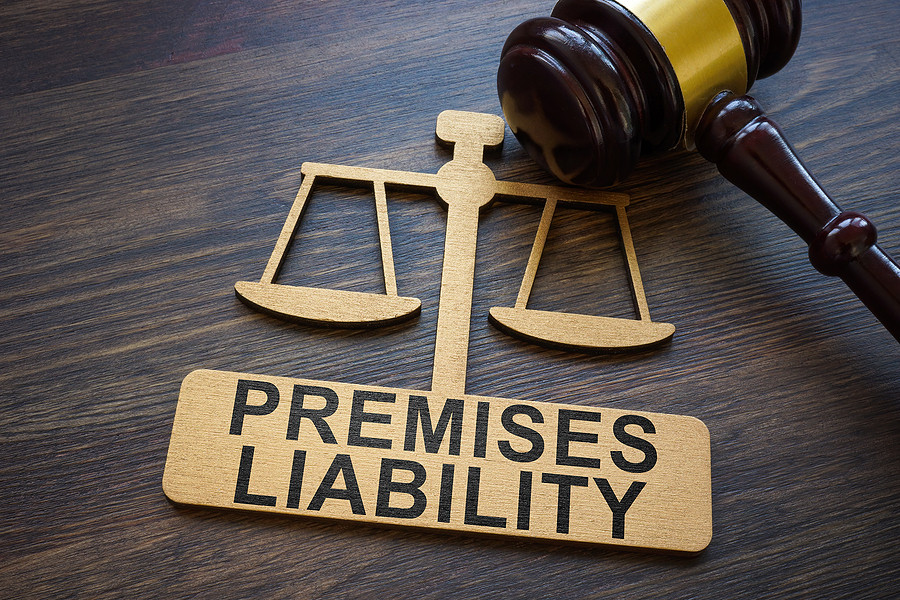Slip and fall accidents can lead to severe injuries, impacting victims both physically and mentally. Understanding the legal aspects surrounding these incidents in Indiana is crucial to protecting your rights and securing personal injury damages you are legally entitled to. This blog is here to shed light on the premises liability law in Indiana, detail the legal process involved in slip and fall cases, and guide victims on how to navigate the often complex terrain of personal injury cases. Join us as we delve into the intricacies of this critical aspect of law.

What is Premises Liability in Indiana?
Premises liability is a legal doctrine that holds property owners responsible for injuries suffered on their premises. This entails the responsibility of the owner to maintain a safe environment and reasonably prevent hazards from occurring. In Indiana, both residential and commercial property owners must endeavor to help keep their visitors safe by taking appropriate measures. If they fail to do so, they can be held liable for any injuries that occur.
How Does Indiana Law Define a Slip and Fall Accident?
In general, a slip and fall accident is defined as an incident where someone trips or slips due to hazardous conditions on the property of another person. This could include anything from a slippery floor to debris left in a walkway. In Indiana, the courts use a “reasonableness standard” to assess whether someone is liable for a slip and fall accident. This means that if it can be reasonably assumed that the property owner did not take adequate steps to prevent an accident from occurring, they may be held responsible.
Additionally, there are two approaches adopted by Indiana Courts when dealing with slip, trip, and fall accidents. The “open and obvious” doctrine dictates that if the hazard is open and obvious to a reasonable person, then it could be assumed that the plaintiff should have taken more care in avoiding the accident. However, even if the hazard is open and obvious, a property owner can still be liable depending upon the specific facts of the case. On the other hand, the “reasonable discovery” rule states that as long as a hazard is not open or obvious, property owners still have an obligation to take reasonable steps in making sure their property is free of dangers.
What Should You Do if You Get Involved in a Slip and Fall Accident?
If you find yourself involved in a slip and fall accident, the most important thing to do is seek medical attention right away, even if your injuries seem minor. Additionally, it’s a good idea to take photos and videos of the scene and to obtain names and phone numbers of witnesses, as this can be used as evidence in court. It is vital that you request that the property owner or manager retain any and all video of the fall from at least two hours before the fall to two hours after the fall. It’s also important to note anything that could have caused the accident, such as a slippery floor or something blocking your path. Finally, it’s crucial for you to get legal advice from an experienced personal injury attorney who can guide you through the process of filing a lawsuit and securing damages.
What Kind of Damages Can You Recover in a Slip and Fall Lawsuit?
If you are successful in filing a lawsuit against the property owner or whoever was in charge of the property at the time, you could be eligible to receive compensation for any medical bills, pain and suffering, lost wages and other losses incurred due to your injuries. This includes physical pain and suffering, emotional distress, lost wages, and even punitive damages if the court or jury deems them appropriate. In addition to these damages, you may also be able to receive compensation for lost property or repair costs as well. This could include items such as clothing damaged during the accident, medical equipment or aids used to treat your injuries, and any other costs related to the incident.
Conclusion
Slip and fall accidents can lead to serious injuries and financial losses, which is why it’s important to understand the legal aspects of these cases in Indiana. If you have been involved in such an accident, contact a knowledgeable premises liability attorney who specializes in slip, trip, and fall cases can help guide you through the process of filing a lawsuit and ensure that you get full compensation for your losses. With the right guidance and proper documentation, you can secure justice and financial security for yourself and your loved ones.
If you have experienced a recent personal injury accident, make sure to take the time to understand your options before making any decisions. Contact Craven, Hoover & Blazek, P.C. at 317-881-2700 to schedule a free initial consultation with seasoned slip and fall lawyers in Indianapolis, Indiana. We represent victims all throughout the state, plus Indiana residents injured in other states.
Related Posts:
10 Things to Know Before Filing a Slip and Fall Accident Claim
Indiana Slip and Fall Accident Claim Guide for Victims
The Key Liability Questions in Slip and Fall Lawsuit
